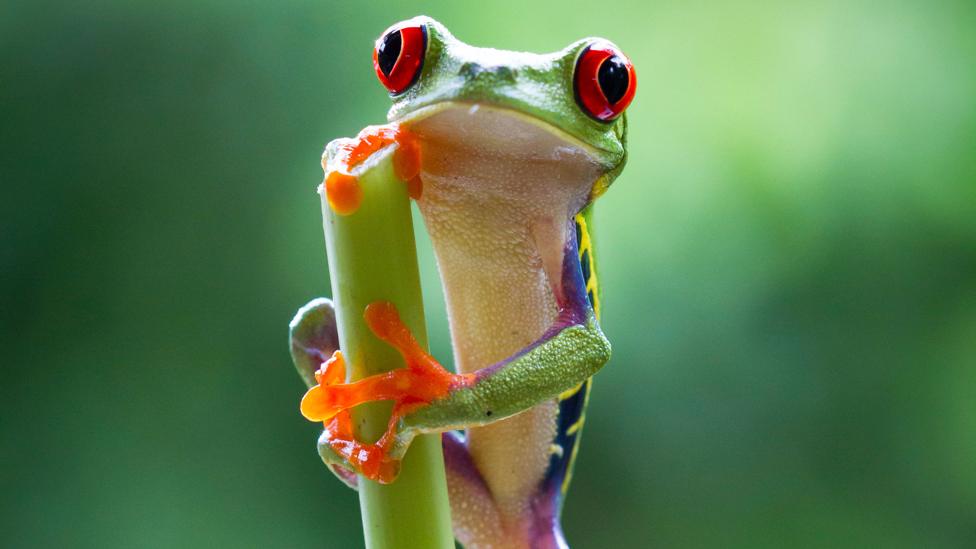James Blake uses unseen Planet Earth footage in new video
- Published
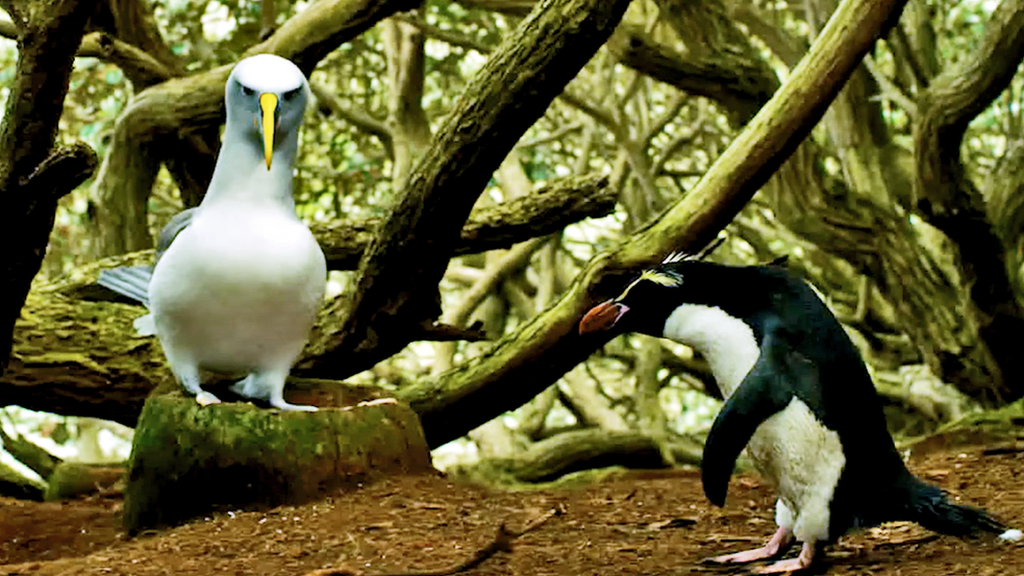
The footage was originally shot on The Snares Islands, near New Zealand
James Blake has unveiled a breathtaking music video for his new single I'll Come Too, which was made in conjunction with the BBC's Natural History Unit.
Using unseen footage from Planet Earth 2, it depicts an unlikely "love story" between a penguin and an albatross, as Blake sings about the blissful infatuation of a new relationship.
The collaboration came about when Blake, who's "a massive Planet Earth fan", pitched his idea to the BBC.
"It was a huge long shot," he says.
"You're dealing with the greatest footage of animals ever taken, and the idea of asking someone to put that to music is arrogant at best and idiotic at worst.
"Amazingly, they were quite receptive to the idea, so I'm really honoured that they would let us do it."
Allow YouTube content?
This article contains content provided by Google YouTube. We ask for your permission before anything is loaded, as they may be using cookies and other technologies. You may want to read Google’s cookie policy, external and privacy policy, external before accepting. To view this content choose ‘accept and continue’.
I'll Come Too is taken from Blake's fourth album, Assume Form, which was recently nominated for best alternative album at the 2020 Grammys.
The dreamy ballad was inspired by the memory of falling in love with his partner, actress Jameela Jamil.
"I was remembering a moment," he tells the BBC. "It's about the inception of a new love and that moment where you're aimlessly following this person wherever you can.
"You have this kind of magnetic pull where you'll say, 'Let's drive around till three in the morning,' because you don't want go home, you don't want to be away from them."
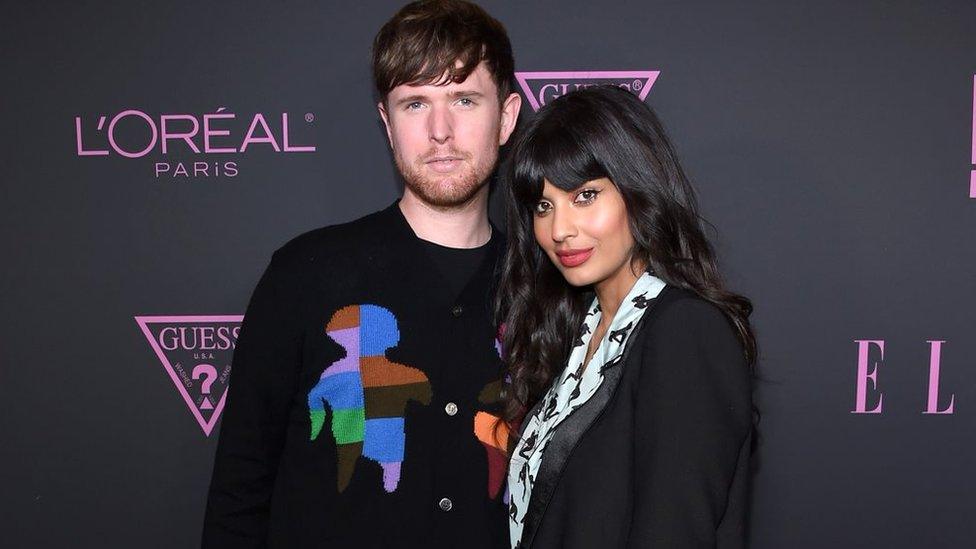
James Blake and Jameela Jamil met in 2015, when the actress was a DJ on BBC Radio 1
When he was considering releasing the track as a single, Blake received dozens of treatments from video directors but felt they were all "too on-the-nose".
"The lyrics in the song are fairly simple, so to match them up with a human love story felt too obvious. I wanted something a little bit more abstract."
Inspiration struck in the lobby of a hotel, where he saw a photograph of two birds taking flight.
"You could see their wings about to unfurl and I had this lightbulb moment of, 'Why don't we use animals to tell the story somehow?'"
The musician contacted Bafta-winning Planet Earth editor Matt Meech through his website in August, asking if there was any appropriate footage in the archives.
"James wanted to involve penguins, but most penguin stories are monographic - just black and white," says Meech. "We have cuddling penguins and things but I thought it needed more grit than that because the music's so [compelling]."
He eventually remembered rushes that had been shot on The Snares Islands, about 200km south of New Zealand, for 2017's Planet Earth 2. They feature the Buller's mollymawk, a member of the Albatross family, whose "unusual mating dance" somehow attracts the attention of a Snares Penguin.
"Birds are kind of weird. They flirt with other species a bit," laughs Meech. "A bit like a dog humping your leg, they get confused.
"So there are these moments where they're chatting and nodding their head to each other, and I thought, 'Ah, maybe we could do something with these strange, inter-species attractions.'
"There obviously wasn't a real love story between these two animals, but enough reactions and character shots to create a story in the edit."
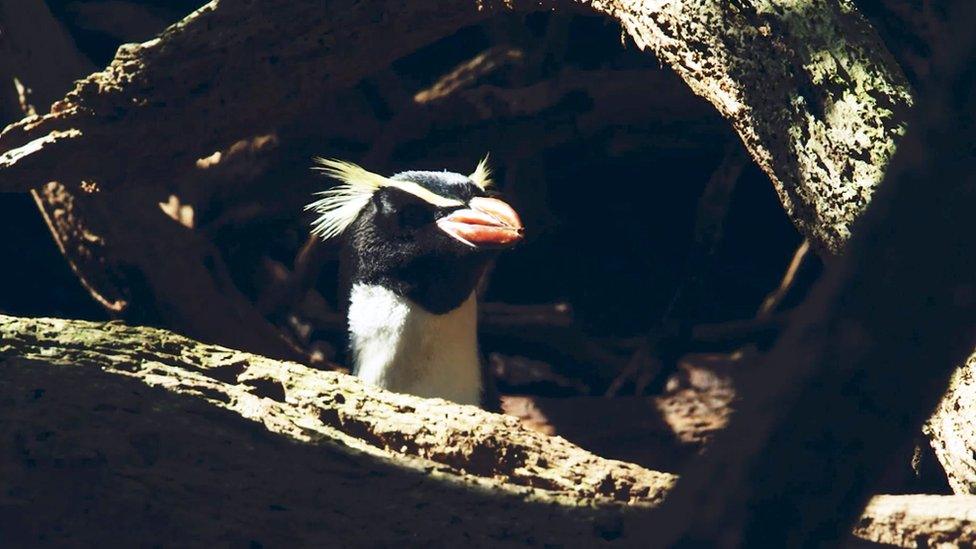
The Snares Penguin is classed as vulnerable, as it only breeds on one small group of islands
The Planet Earth team notoriously don't approve of anthropomorphism - that is, attributing human characteristics to animals - and Meech says "persuading the BBC" to approve the storyline "was a challenge".
"They were very, very cautious, but I cut a version that's not too far from a truthful situation - the birds do engage in a sort of flirtation - and eventually they signed it off."
Telling the story without input from Sir David Attenborough was another hurdle he had to clear.
"Usually we have David to help tell the story," says Meech, pulling off a passable impersonation of the naturalist: "'And the penguin finds himself taken with the albatross'.
"So the challenge was, can you tell the story like a silent movie, with only the lyrics to help it along?"
The film was finally completed last week and premiered on YouTube on Monday. The marriage of footage and the music is quite beguiling, with Blake's heavily processed backing vocals taking the place of birdsong as the story unfolds.
"I'm completely in love with it," says Blake. "It's really funny how there's layers to it. On my second watch, I discovered all these little moments in the retelling. I'm very excited for people to see it."
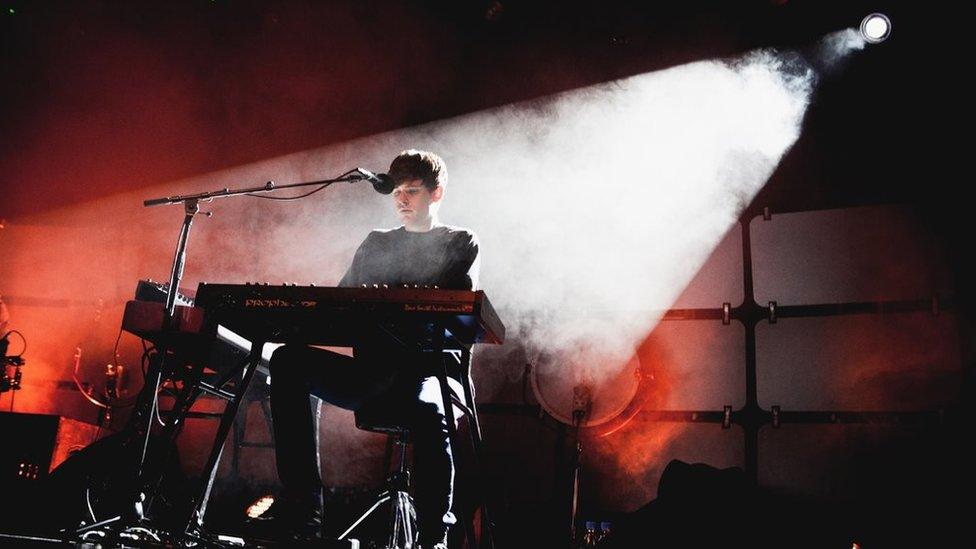
The star is ditching electronics to play a solo acoustic tour
The British musician, who won a Mercury Prize for his second album Overgrown, is currently playing a handful of solo shows in Los Angeles and New York, repurposing his layered, electro-sonic soundscapes for the acoustic piano.
"I've not really done this before," the 31-year-old says. "It's very exposing. I'm naked and afraid - two things none of us want to be.
"I have been thinking about costumes," he adds. "You know, ways to dress that will make me feel a little less terrified. And so far, there are no clothes that can make it better!"
He's had to be "quite selective" about the songs he plays, because some of his more electronic tracks don't "survive the process of stripping them down".
"But I'm looking forward to it because the piano is at the core of everything I do, really.
"I can produce and I can do all the trickery stuff - the smoke and mirrors - but at the core of it, I've always played piano and I've always sung and that's where I'm happiest, probably."

Follow us on Facebook, external, or on Twitter @BBCNewsEnts, external. If you have a story suggestion email entertainment.news@bbc.co.uk, external.
- Published26 May 2018
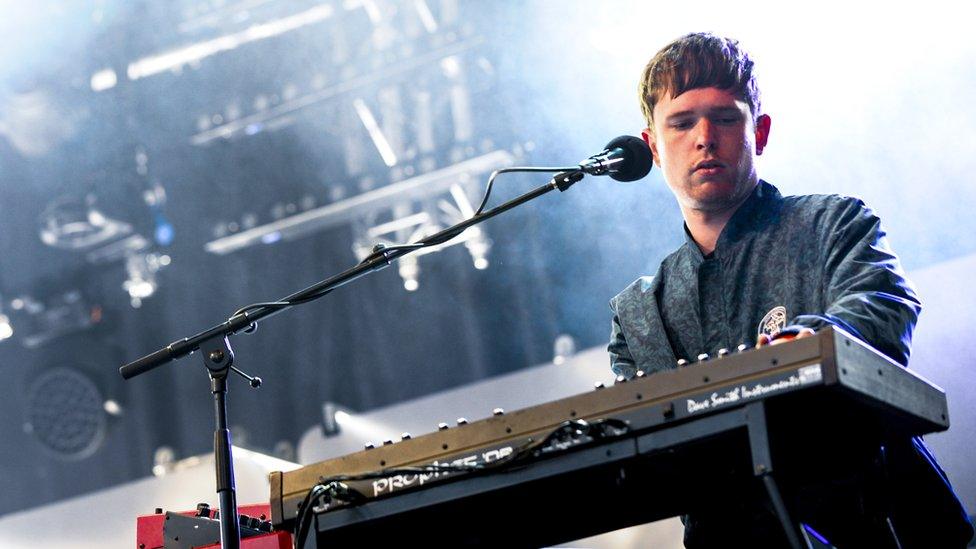
- Published31 October 2013
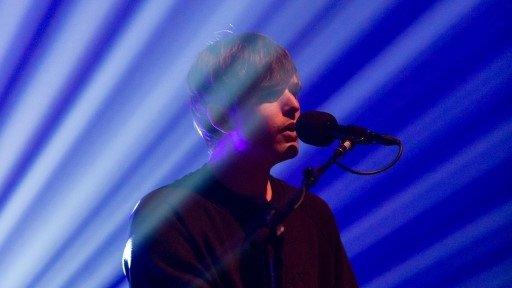
- Published11 December 2016
